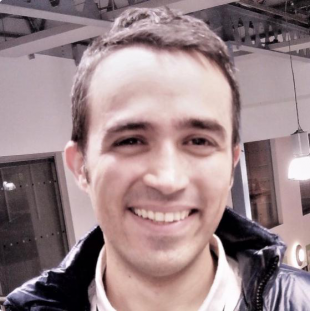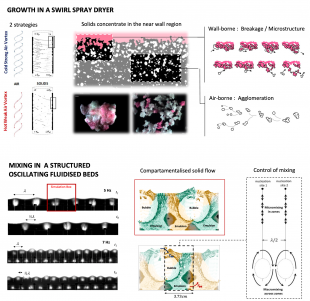Location:
Date:
Abstract
A higher efficiency and a better control of gas-solid operations are crucial steps in the decarbonization of industrial processes. Our ability to manipulate the hydrodynamics of gas-solid flows and to control particle-particle interactions determines the way forward in key technology, from multiphase reactors (e.g., combustion, gasification, catalytic production, chemical looping), to resource intensive particulate products manufacturing (e.g., drying, granulation, coating), environmental (e.g. biomass pyrolysis, plastic waste treatment), energy (e.g. storage, solar collectors) and fast-moving consumer goods sectors (e.g., pharmaceutics, foods). In this talk, I will introduce intensification strategies that make use of additional degrees of freedom in the design of a gas-solid unit to optimize mixing and/or the gas-solid contact. I will start with a brief overview of our research activities and the multi-scale research platform at IMPEE (Institute of Mechanical, Process and Energy Engineering at HWU). Then I will present two case studies on full-scale and pilot-scale swirl spray dryers and bubbling fluidised beds, where a vortex or an oscillatory flow have been used to improve heat and mass transfer and gain the ability to control agglomeration, breakage, and mixing. The talk will place a focus in development and deployment of technology, thus stressing scale up practices, and the pitfalls, risks, and challenges in the validation of macroscopic computational modelling platforms.
Bio
Victor Francia is an Assistant Professor at Heriot-Watt University, HWU, Edinburgh, UK, with a professional background as engineer and consultant in the water, energy and consumer goods sectors (Acciona, ExxonMobil, P&G). He graduated from Universidad de Salamanca, Spain 2006, and moved to an academic career in 2012 with a doctorate on spray drying under sponsorship of P&G. He has since worked at Imperial College London and University College London modelling complex multi-phase flows and structured fluidised beds. Victor started his research group in 2019. His work focuses on particle flow and process intensification, how we can control the dynamics of particle-particle interactions such as clustering, agglomeration, breakage, deposition, and resuspension with external actuation to design more robust technology, and advance control and monitoring tools.




